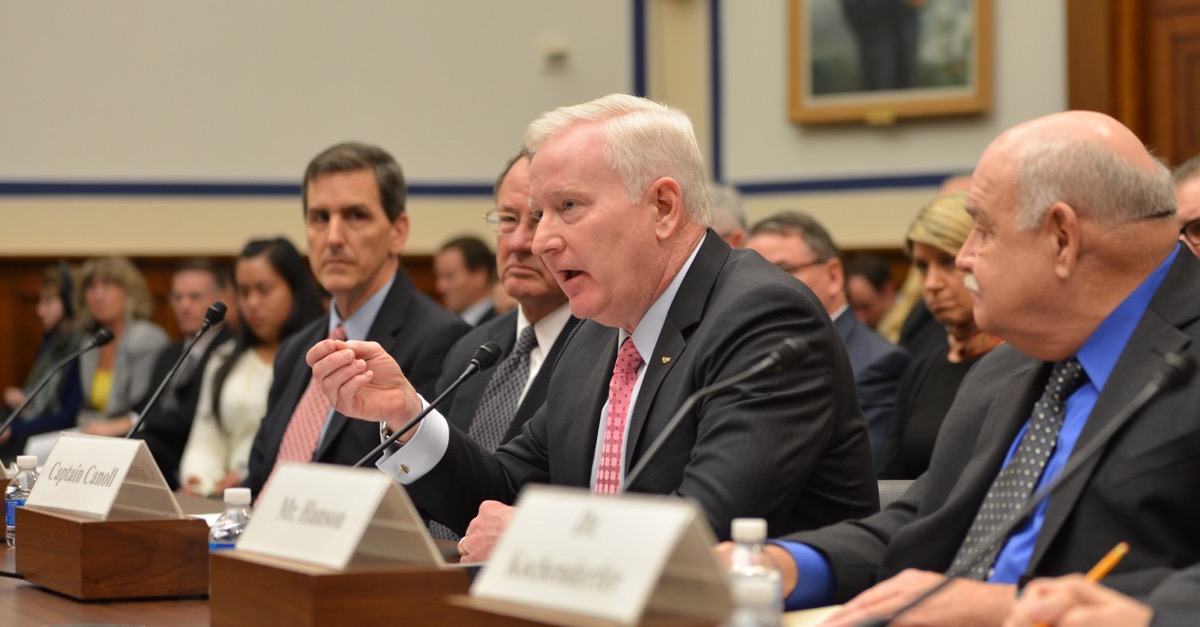Published on
April 5, 2016
By ALPA Staff
Despite mounting evidence pointing to the hazards associated with the bulk shipment of lithium batteries, the United States still has work to do to ensure that they can be safely shipped on both passenger and all-cargo aircraft. Currently, the Senate is taking action on a Federal Aviation Administration (FAA) reauthorization bill, and ALPA has worked tirelessly to ensure that this important legislation contains strong provisions on the safe transport of lithium batteries.
The international community recently agreed to new standards to improve lithium battery safety, and the International Civil Aviation Organization’s updated standards went into effect last week on April 1, 2016. These include a temporary ban on the shipment of lithium-ion batteries on passenger airliners until adequate safety regulations are in place, a ban on shipping lithium batteries with more than a 30 percent charge, and a prohibition on shipments of batteries packaged together undeclared as hazardous goods, a loophole known as “Section II overpack,” which has long been misused to get around required regulations to transport dangerous goods. ALPA has been advocating that the United States pursue full harmonization with all of those standards.
Published on
February 8, 2016
By Capt. Tim Canoll
The proposed FAA reauthorization bill introduced in the U.S. House of Representatives this week falls significantly short for airline passengers and air cargo shippers when it comes to advancing the high standards that make air transportation in the United States so extraordinarily safe.
A key reason for the extraordinary safety of our system is our commitment to providing airline pilots with the highest standards of training and qualification. Today’s first officer qualification and training requirements were prompted by Congress in 2010 following four fatal airline accident investigations that identified the pilots’ lack of training as a factor in the accidents. These regulations weren’t arbitrary, nor were they sudden––the safety-focused rules came out of an industry-wide effort led by representatives of the regional airlines. We are pleased the sponsors of the House FAA reauthorization bill recognize the importance of these regulations and agree that they must remain firmly in place. ALPA will vigorously oppose any attempts to change this regulation via amendment to the FAA reauthorization bill.
Published on
January 4, 2016
By Capt. Tim Canoll
As ALPA ushers in a New Year, we take a moment to reflect on the achievements of the past year and renew our energy and commitment to realizing our union’s vision for the piloting profession and the North American airline industry. This year marks ALPA’s 85th anniversary. The knowledge and resources forged from eight decades of experience give us the strength and credibility to remain the most influential and respected voice in aviation and to pursue the highest standards of safety, security, and pilot assistance.
In the coming year, our union will do even more to build on decades of work to support our members in every way possible as many pilot groups begin or continue the hard work of negotiating collective bargaining agreements. We'll also keep watch in the year ahead for opportunities to advance labor as a whole.
Published on
October 7, 2015
Today, I testified [oral|written] before the U.S. House of Representatives Aviation Subcommittee and urged lawmakers to direct the FAA to regulate unmanned aircraft systems (UAS) operated for recreation and hobby.
With the anticipated sales of one million UAS during this year’s holiday season, we must address all UAS operations immediately. The FAA is making some progress in ensuring the safe integration of UAS into our nation’s airspace system, but more is required. Just look at this summer’s release of the hundreds of FAA reports from pilots on UAS encounters. In these reports, pilots across the country described seeing a UAS while in flight, often during takeoff and landing, the most critical phases of flight.
In order to continue to track these instances, ALPA has been encouraging pilots who encounter a UAS to follow their company guidance and, where applicable, file a report with the FAA. There is a dedicated page on ALPA’s website, available to anyone, that helps pilots understand whether the encounter is likely reportable as a near mid-air collision and provides the links and information needed to submit the necessary information.
Published on
October 1, 2015
ALPA pilots were on Capitol Hill this week as the U.S. federal government took steps to avert a shutdown and Congress extended the current authorization of the Federal Aviation Administration (FAA) until March 31, 2016.
It is indeed good news that the FAA’s authorization has been extended, but this week’s temporary fix is just the latest example of Congress’s long history of stop-and-start funding for the agency. While erratic reauthorization has made it challenging for the FAA to implement necessary safety and air traffic system upgrades, the progress made during its most recent three-year reauthorization offers a taste of the advancement that stable funding makes possible. For example, over the last three years, the FAA made significant strides in air traffic flow and coordination through en route automation modernization (ERAM) and gained safety, environmental, and efficiency benefits through a number of NextGen initiatives such as ADS-B and performance-based navigation implementation.





